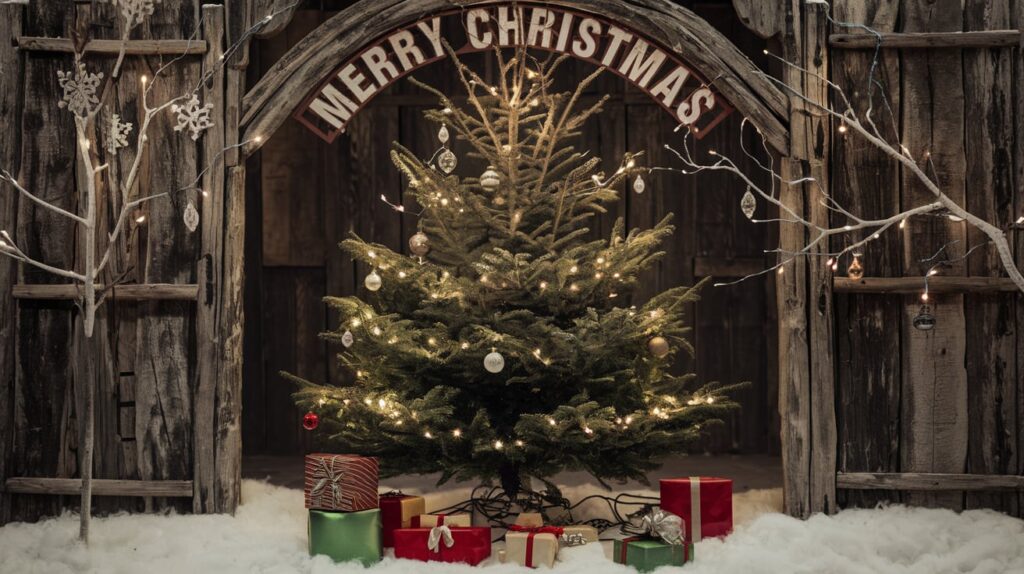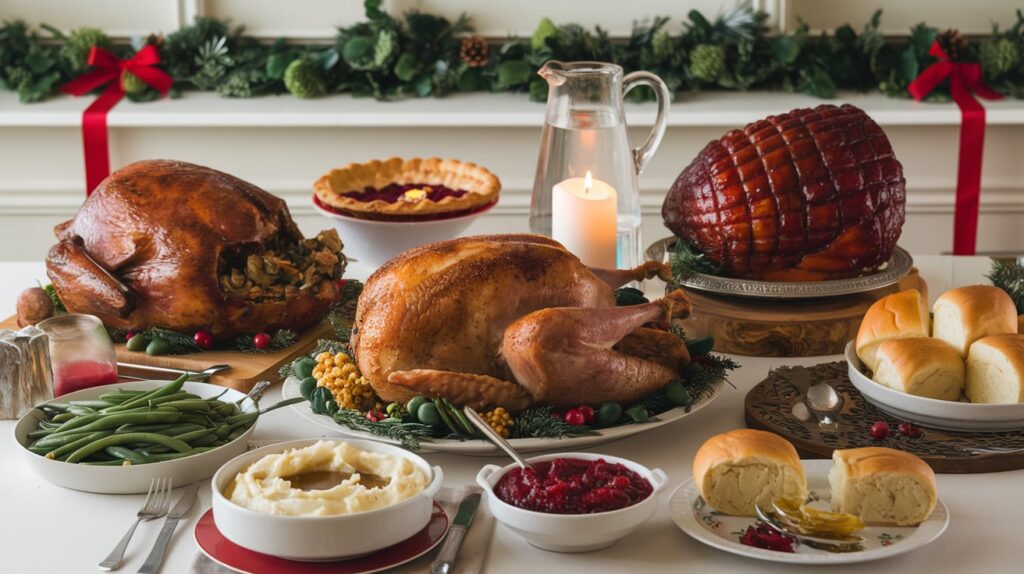What do you think of holidays that seem to slip under the radar in your own culture? One such holiday is Boxing Day, celebrated in many countries around the world, yet why don’t Americans celebrate Boxing Day? You might wonder why such an interesting and festive day doesn’t hold a place in the American calendar. Let’s journey through the origins of Boxing Day, its significance, and the reasons why it hasn’t woven its way into American traditions.

Table of Contents
Understanding Boxing Day
Boxing Day, celebrated on December 26th, is a public holiday in several countries, particularly those with historical ties to the United Kingdom. This day has its roots in the 19th century, a time when it represented a day for giving to the less fortunate and showing gratitude for service received throughout the year.
The Origins of Boxing Day
The origins of Boxing Day can be traced back to the Middle Ages. It was a time when affluent families would prepare boxes filled with gifts, food, and money to be distributed to their servants and the poor. The day after Christmas, when these servants received their boxes, became known as Boxing Day.
In many cultures, especially in the UK, this day has evolved into a day for family gatherings, sports events, and significant retail sales. Though it carries a spirit of generosity and community, Americans seem to have missed the memo.
What’s in a Name?
The name “Boxing Day” can be a bit misleading. You might think it implies a day filled with physical boxing matches, but that’s far from the truth. Instead, it harkens back to giving and goodwill. The term has evolved, but its initial meaning reflects a season of charity and thoughtfulness, values that resonate deeply around the holidays.
The American Context
Why doesn’t Boxing Day fit into the tapestry of American celebrations? To understand this, we must examine America’s unique identity and its approach to holidays.
The American Holiday Calendar
The American holiday calendar is packed, particularly between Thanksgiving and New Year’s. With Christmas taking center stage, it naturally overshadows Christmas’s subsequent day. Instead of Boxing Day, Americans often find solace in gathering with family or enjoying relaxation after the hustle and bustle of Christmas.
| Holiday | Date | Notable Traditions |
|---|---|---|
| Thanksgiving | Fourth Thursday in November | Family feasts, parades, football games |
| Christmas | December 25 | Gift-giving, tree decorating, gatherings |
| New Year’s Day | January 1 | Celebrations, fireworks, resolutions |
While Boxing Day could theoretically fall into this holiday season, it hardly receives mention, nestled quietly behind the multi-celebratory weeks in late December.
Cultural Differences
Americans tend to cherish their unique traditions, often holding onto holidays that reflect their history, culture, and values. While many countries have embraced Boxing Day as a time of giving, Americans have cultivated their own identity in holiday celebrations, emphasizing family, gratitude, and the vibrancy of cultural diversity present within the country.
Retail and Boxing Day
You might have noticed that shopping plays a significant role in many holidays. In countries that celebrate Boxing Day, it’s often marked by shopping sales similar to Black Friday in the United States.
The Rise of ‘Post-Christmas Sales’
In the U.S., the day after Christmas doesn’t bear the name Boxing Day but is instead known for its significant post-Christmas sales. Retailers often use this day to clear out holiday inventory. While logos and ads might echo the style of Boxing Day sales abroad, the name itself remains absent from discussions and promotions.
| Aspect | Boxing Day (Intl) | Post-Christmas Sales (US) |
|---|---|---|
| Date | December 26 | December 26 |
| Main Activities | Giving, Family Activities | Shopping, Clearance Sales |
| Cultural Significance | Generosity and Charity | Commercialism, Consumerism |
The Modern-Day Influence
In a globalized world, everything influences everything else. The spread of cultural practices is easier nowadays thanks to media, travel, and social connections. So why hasn’t Boxing Day made a serious dent in American culture?
The Role of Media
With music, films, and television holding strong sway over your daily life, it’s interesting to consider how they shape holiday practices. While Christmas movies, specials, and songs abound, Boxing Day barely gets a mention—if any. The lack of mainstream media coverage contributes to the absence of a broader public awareness about the holiday, keeping it off the American radar.
The Influence of Immigration and Globalization
Immigration has significantly shaped American culture. While many cultures bring their traditions, Boxing Day hasn’t gained widespread traction despite being celebrated in various immigrant communities. The absence of a cohesive cultural push within a large enough segment means that the day remains relatively obscure.

Community Celebrations
While Boxing Day holds its own in certain countries, it also provides a wonderful opportunity for community activities and social gatherings. However, in the U.S., local celebrations often resemble existing holiday traditions.
Local Events and Gatherings
In many countries that celebrate Boxing Day, it’s common to see sports events, charitable ventures, and community gatherings. Cuisine, music, and activities tend to focus on creating a sense of belonging, giving back, and enjoying community spirit.
In contrast, American communities tend to emphasize winter holiday gatherings that center more around New Year celebrations rather than a dedicated Boxing Day spirit. The focus often turns to festivities associated with New Year resolutions and fresh beginnings.
Charitable Giving
One thread that can be spooled together from both Boxing Day and American practices is the notion of charity. While Boxing Day encourages giving, Americans often hold charitable drives and events around Christmas or New Year. Maintaining such traditions shows a similar spirit of helping those in need, but just at a different time.
The Influence of Technology
In an age where technology connects people like never before, the intertwining of traditions across borders becomes conceivable. Yet, despite these advancements, Boxing Day remains relatively untouched in America.
Social Media Trends
These days, social media can dictate popular culture, yet references to Boxing Day are few and far between. During the time of Christmas retail craziness and New Year revelries, your timeline is likely filled with posts related to those events, leaving Boxing Day starved for attention and overshadowed by more popular themes.
Online Shopping Culture
Similar to its retail counterpart, the boom in online shopping has made the day after Christmas quite significant. While Boxing Day sales are a tradition elsewhere, the American holiday landscape prefers to focus on what’s happening at home, making it possible for the day after Christmas to simply fade into the background.
Reflections on Celebration
Boxing Day is a delightful mix of camaraderie, sports, charity, and family values many nations treasure. Yet, it seems to lack the cultural gravitational pull to take hold within the United States.

Embracing New Traditions
Given the dynamic change in American tradition and culture, there’s always room for embracing new holidays or alternative celebrations. Maybe Boxing Day could find its place among the December joy, a cozy end to the festivities. The era of embracing diverse customs is upon us, and it is worth pondering if some could find joy in the spirit of Boxing Day.
Conclusion: Why Don’t Americans Celebrate Boxing Day?
There’s something special about each holiday, regardless of it being widely celebrated or not. Boxing Day is no different, bringing joy, generosity, and community to many around the world.
Your culture, shaped by history, experiences, and individual preferences, might not currently spotlight Boxing Day, but that doesn’t mean its spirit of giving couldn’t find a home in daily life.
As we move forward, perhaps there’s a chance to make room for a little more joy, gift-giving, and connection within our American tapestry. After all, isn’t it lovely to consider how we might blend our rich traditions? Embracing holiday uniqueness can only add to the mosaic that is your culture.

